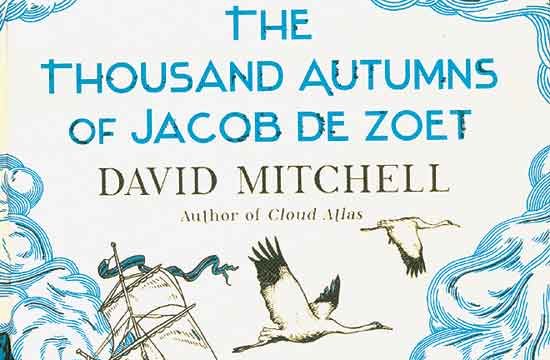In 1799, the world was a different place. The Japanese, for instance, had constructed an artificial island Dejima, just off the shores of Nagasaki, in order to contain the white man. Jacob De Zoet, our hero, disembarks on Dejima and we’re off.
Historical fiction poses many challenges but the chief one is to make the hero someone we, as modern readers, can identify with and someone whom we, as modern readers, can see is quite clearly a man of his times. Mitchell has no time to make Jacob anything but a puppet for his plot. Everyone around him speaks in one-liners and everything happens simultaneously. One cannot help feeling that one is reading the script for a graphic novel. Dutch boy gets off at Japan. Dutch boy falls in love with Japanese girl who has a terribly injured face. Japanese girl is whisked off by Villain. Dutch boy starts off in pursuit. All this is in the present tense. It didn’t happen then. It is happening now. Like this review. Everything in the world is simultaneous.
The dialogue crackles with action. Only it’s the wrong kind.
“‘My uncle says,’ Jacob slaps a fly, ‘he was one of the great men of our age.’”
Or
“’Science moves,’ Marinus scratches his thick neck, ‘year by year, towards a new state of being.’”
Or
“’The gardener,’ Jacob brushes his coat, ‘at your aunt’s house.’”
Who is Marinus? If you are a Mitchell fan, you might just get that far. If you are not, you might not even need to read this book. For those of us who like historical fiction to seem like it might be about some time in the past, Mary Renault still rules, okay?




